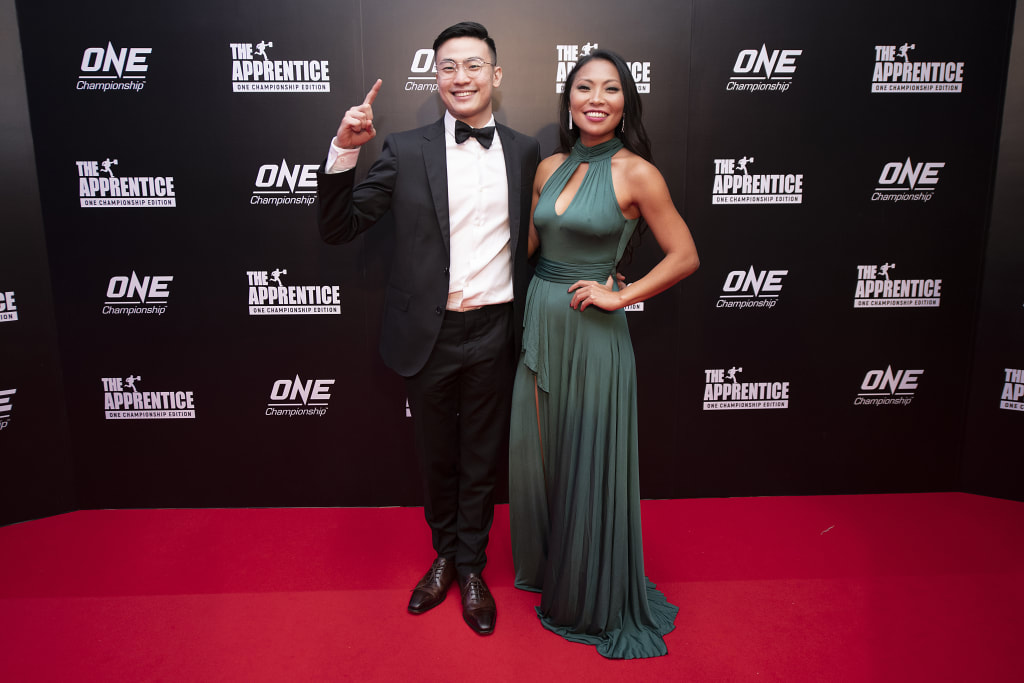
The hippie girl who tried to trick me was already drunk. She was beautiful, came from an elite school, and was used to chewing up and spitting out men. But she didn’t count on one thing. I may come from peasant origins, but I too, am worldly in my own way.
I was a student of Fante and listened to Chopin in the dark. When the questions came, I was ready.
What did I think of the Baghdad Gita? Oh, I can’t say I’ve heard of it, but if it’s the Bhagavad Gita she was referring to, I think it’s an excellent book. In fact, I think it’s an allegory for life, of how it is far better to live out one’s own flawed destiny to the fullest than to fulfill a pale imitation of somebody else’s with perfection.
Her eyes glistened. She leaned closer to me. What did I think of tarot cards, and for that matter, crystal healing? Well, I think even though they don’t have roots in scientific literature, they provide a framework for the human mind to wrap around. I then confess with a self-conscious chuckle: I myself own a small moonstone I keep on my desk as a paperweight. It helps stimulate my creativity…
I close off my three-punch combo by musing that the 60’s was probably the best time to be alive, that it was a shame the counterculture movement had to end after the Tate-Labianca murders in 69. I cap things off by buying her a drink and quoting Hunter S. Thompson, “Let us toast to animal pleasures, to escapism, to rain on the roof and instant coffee, to unemployment insurance and library cards, to absinthe and good-hearted landlords, to music and warm bodies and contraceptives…and to the “good life”, whatever it is and wherever it happens to be.”
That did it. She took me from the bar to her home. Her home was nice but its niceness was not the point. Wonder of wonders! She had a pint of Bacardi Rum (spiced) in her fridge. We drank it down.
Soon it began to come, the drunkenness, the heavy stupor, the spinning of space-time accompanied by an extraordinary sense of power. I laughed the delighted laugh of the insane while she just sat there, biting her lip. She was watching me but I was already beyond her watching, beyond the earthly limits of my flesh. My soul was floating among pale moons that had never been born. I was a god, never that quirky man with his strange bravery and half-hearted manipulations.
On the table beside me were her crystals; delicate, beautiful things. I grabbed one and flung it on the floor. It shattered into a thousand iridescent shards. She started at the sound, turned her head, and was stunned by the ruin of Beauty. Then I laughed —and my laughter made her laugh, too.
She came up to me and slid into my arms. We kissed, and when our lips met Time lost all form and meaning, everywhere consisted only of the eternal Now, and as our clothes fell off the air was electric and alive with the sound of false love and mewling passion.
At the peak of it all she cried out and raked my back with nails like love-razors, and blood-flowers bloomed where her fingers passed. She clung to me hard and I laughed at her tears.
-
I was young then, at that precocious age where hangovers did not exist, and when I awoke I found that I only had a dry mouth to contend with. I tiptoed to her kitchen to pour myself a drink, making sure to move as quietly as possible. I watched her sleeping form as I drank.
She really is quite beautiful, I thought. The sly sun streaming through the blinds set her hair on fire, and there were dust motes everywhere, dancing in a halo around her naked form. The white sheets she lay on seemed to envelop her, to caress her, and at that moment she looked pure and perfect and sinless, like a tiny angel at rest. The angel opened her eyes.
“Hello, you,” she said.
“Good morning,” I replied.
Her strawberry lips twitched and smiled at my politeness, then just like that she turned blunt. “I don’t believe I know your name,” she said, and when she said that I had to laugh. I laughed because it’s true — I don’t know her name, either.
“My name is Calvin,” I said; then as a jibe, as a joke, as a gentlemanly gesture, I offer her my hand. She accepts. She took my hand in hers and shook it daintily once, saying, “Why hello, Calvin. Nice to meet you, my name is Evelyn.”
Ah, Evelyn; fair Evelyn, so close to Eve, only one syllable apart, and I spend the day with her, this Evelyn I met at not The Garden but at the bar. It was a Saturday, and we both had no work, so I spent the rest of the day with her, in her house, in her arms; eating, laughing, making jokes, making out—and making love.
Later, after a particularly riotous love-making session, she begins to open up to me, to tell me more about her life. She’s a yoga teacher, she says, and she also owns a small business selling crystals online. That explains the banging body and the crystals everywhere. Then Evelyn looks up at me coyly and asks, “So, Cal, what do you do?”
“Me? I do nothing. I’m a writer.”
“A writer,” she gushes, “that’s so cool,” and I blush and wave her compliments aside, but the rose-red of my cheeks and my single waving hand is not enough to dissuade her, because she asks, “So, what are you working on right now?”
“A short story.”
“A short story?”
“Yes, a short story about love.”
“Cool!” she says again, eyes wide and glittering — and then it comes out. She’s a writer, too; she writes poems by herself at home and never publishes them, and she’s also a bookworm positively in love with books, and I have no choice but to ask, “So, who’s your favorite writer?”
“Murakami,” she sighs. I simply love the way he writes. His writing; it’s so surreal, so dark — yet so hopeful at the same time. I don’t know how he does it.”
I personally think Murakami is garbage but I am tactful, I do not tell her that. Then it’s her turn to ask, “Who are your favorite writers, Cal?”
“Me? Well, I like, in no particular order, the works of Dostoevsky, Knut Hamsun, Herman Hesse, John Fante, George Orwell, Bukowski, and some of early Ernest Hemingway. I also like the Chinese poet Li Bai, the short stories of Stephen King and Roald Dahl, and the fantastical fantasies of Patrick Rothfuss, Neil Gaiman, and George R.R Martin.”
But upon hearing my list Evelyn’s eyes became narrow and her nostrils flared. “Bukowski?” she said, incredulous. “You mean Charles Bukowski?!”
“Why, yes. There is only one Bukowski.”
“DON’T YOU KNOW THAT CHARLES BUKOWSKI IS A SERIAL WOMANIZER AND WELL-KNOWN MISOGYNIST?!”
I am surprised, caught off-guard by the vehemence in her voice, and when I am caught off-guard I have a stupid tendency to tell the truth. “Well yes, he was — but that does not diminish the beauty of his words. Hamsun, for example, was a Nazi sympathizer, and Hemingway was a warmonger and a drunk, but they were still geniuses when it came to hustling black words across the blank page. A person can be two things at once.”
Evelyn pouts and crosses her arms, not believing me, so I tried a softer approach. I said, “Look, baby, have you actually read any Bukowski?”
“I don’t need to read him, I don’t want to read him — I KNOW THAT BUKOWSKI HATES WOMEN AND THAT’S ENOUGH!”
Here we go, I thought — our first argument, and in an attempt to placate her I say, “Well, baby, Bukowski’s not that bad. Sure, he wrote some pretty gnarly things, but he wrote some deeply moving stories, too. Take this poem, for example. He wrote it for his ex-girlfriend, Jane, who died of alcoholism. It goes like this — “ and before I could recite anything Evelyn goes apoplectic. She jumps off the bed like an electrocuted bunny, yelling, “I DON’T WANT TO HEAR IT, I DON’T WANT TO HEAR IT, NO BUKOWSKI POEMS IN MY HOUSE! NO BUKOWSKI POEMS IN MY HOUSE!”
She throws a pillow at me and I duck. I was still ducked down so I didn’t see the second pillow coming. It hits me straight in the chest, knocking me off the bed and onto my butt. I’m getting angry now, and trying to keep the anger out of my voice I said, “Look, Evelyn — let’s agree to disagree. Could you please just cool it down a little?”
In response to this Evelyn grabs a little jade statue of The Buddha and flings it at my face full-force. I manage to slap it away mid-air, and the Enlightened One smashes into the wall beside me and explodes into so many tiny little green shards. So much for love and peace for all things.
I snapped. “WELL, SCREW YOU TOO, LADY. BUKOWSKI WAS A GREAT POET AND YOUR ARGUMENT MAKES NO SENSE — NOT READING BUKOWSKI BECAUSE HE WAS A MISOGYNIST IS LIKE NOT LISTENING TO MOZART BECAUSE HE WAS A DRUNK. YOUR ARGUMENT MAKES NO SENSE AND YOU ARE A PSEUDO-INTELLECTUAL IN LOVE WITH APPEARANCES — AND BY THE WAY, LADY, MURAKAMI IS NOT THAT GREAT!” I yell, then grab my clothes and put them on in a hurry. When they are on I yank open her front door, slammed it, and ran out.
The last thing I saw was her tear-stained face: half-crazed, very angry, but still oh so beautiful…
-
It was already dusk.
The green light of a taxi appeared around the corner and waved hello to me like the fingers of an old friend, and when I got in I gave the driver my address before sinking down low in the comfortable fake leather backseat. My thoughts are of how people are often caught up by appearances. Machiavelli has the right of it, “Appearances deceive the vulgar, and the world consists chiefly of the vulgar.” True, I say to that, very true! — and it was then, and only then, that I allowed myself to smile a slow, satisfied smile to myself.
My plan had worked.
My apartment, unlike Evelyn’s, was not very nice. It was a cheap one-bedroom studio, and it contained only a bed, a wardrobe, and a desk. There was no moonstone paperweight on the desk, only a great many pens, a notebook, a beat-up old laptop, and other assorted writing instruments. There were books strewn all over the floor. Among them were Fante’s under appreciated “Ask the Dust” and several brown and well-thumbed copies of Bukowski. It was a writer’s room, of that there could be no question.
See, I was telling Evelyn the truth. I am a writer — an aspiring one, anyway, and I was writing a short story about love. I was very serious about the story, very serious because I was submitting it to a writing competition. The grand prize for winning was $5000. Five big ones — enough to pay the rent and keep me in bread and books for a long, long time.
I was so serious about this story I decided I had to get my hands dirty. After all, a writer’s stories are only as interesting as his life, and in the process of researching my story about love I went through many girls and broke many hearts. Evelyn was the fourth girl I had dated in two months, and before I met her I was slowly but surely beginning to despair.
But there she was; Evelyn of the bar and not the Garden, my muse who welcomed me into her home, into her arms, and into her bed— then proceeded to throw me out over a literary argument — and all within the first twenty-four hours of our meeting, too. And there she was, not Evelyn but my story, ripe and pretty and perfect, and making sure to keep the story in my mind I sat down on the single chair by my desk and flipped open the well-worn pages of my notebook.
Ah Evelyn, dear Evelyn; forgive me. After all, everyone — and everything, has to work. The grass grows, the birds fly, the ageless waves crash against the face of some long-forgotten shore, and I put pen to paper. Going out with you, loving you, watching the fondness on your face morph into so much shock and anger; these are all experiences in the universal condition we call life, and experience is the ammo of the writer. First-hand experience are to stories what salt and seasoning is to food—it makes the telling of a tale that much better. And my stories? They have to be good. Writing is, after all, my life’s work.
So forgive me, Evelyn, because it’s nothing personal, it’s only business, and I’m far from the only artist who has pulled a stunt like that, and sitting there by my desk beside my open notebook I thought of all the greats who have come before me.
Of Picasso, who had bewitched women, who tamed them, ingested them — only to crush them into so many distorted cubes screaming on his canvas. I thought of old Buk, he who named and shamed the women he slept with, even when they asked him explicitly and in tears not to. And of Chopin, him most of all; the virtuoso who had his heart broken so badly he hereafter spoke of love never with his lips but only with his fingers, and thinking of him I unlocked my phone, found the song I was looking for, and hit play.
The haunting notes of Chopin’s Nocturne №20 filled the air and turned it melancholy, and I picked up my pen and began to write.






Comments
There are no comments for this story
Be the first to respond and start the conversation.